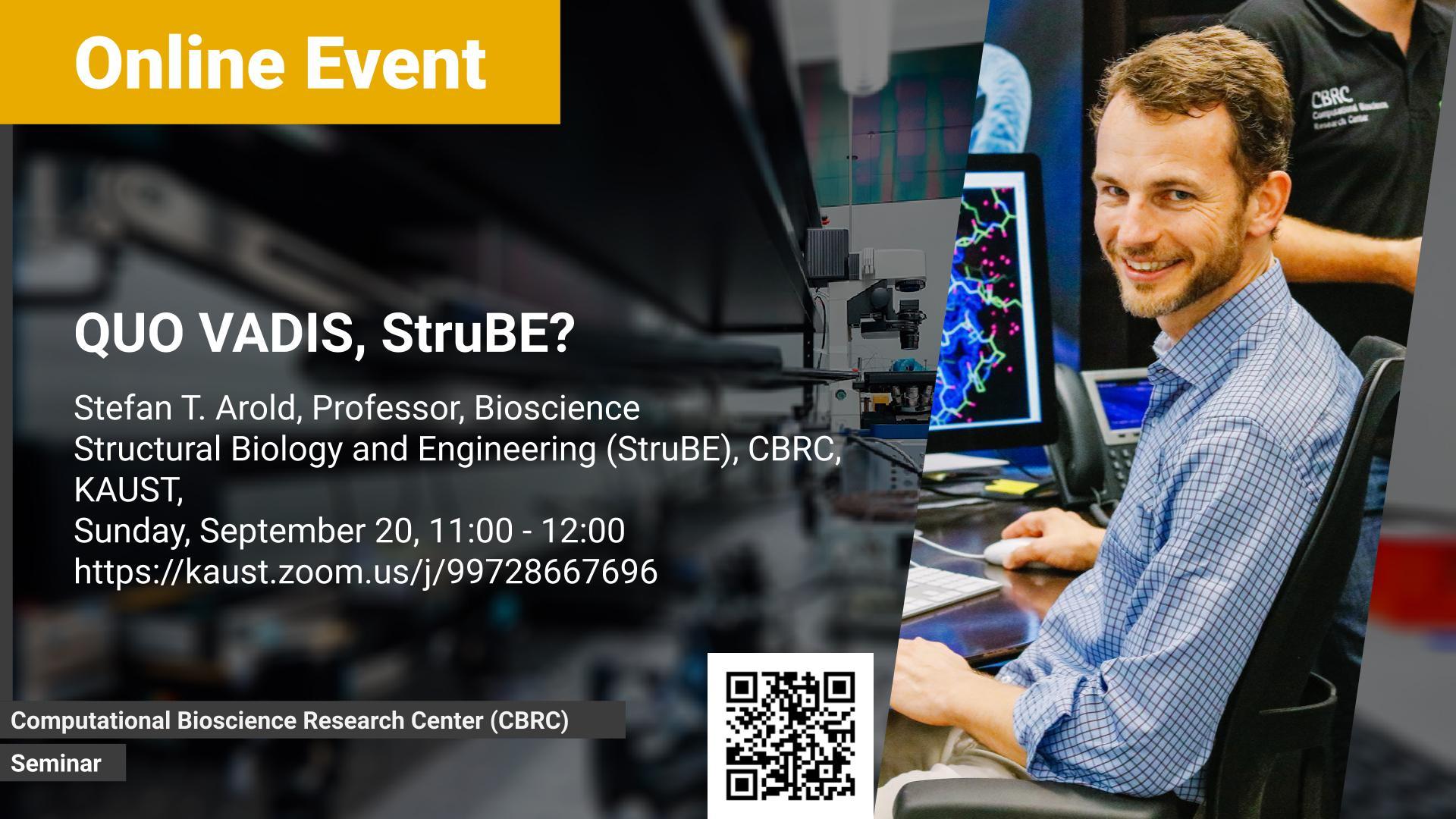Abstract
In this presentation, I will give a short overview of the ongoing and future work in the Structural Biology and Engineering (StruBE) lab. I will show how structural biology has allowed us to obtain a first specific inhibitor for a currently uncontrollable parasitic plant; how we combine structural and computational biology to elucidate the evolution of novel protein functions; and how we use our capacity to engineer proteins to obtain a portable next-generation COVID19 detector with single-molecule sensitivity. I will also give a brief outlook on our planned projects, in particular, our efforts to further integrate computational and experimental structure-guided science.
Brief Biography
Dr. Arold is a full Professor and Associate Dean of the Biological and Environmental Sciences and Engineering Division (BESE), and a member of the Computational Bioscience Research Center (CBRC) in KAUST. Before joining KAUST in May 2013, he worked as a post-doctoral fellow at the University of Oxford, UK (1998–2001), and had faculty appointments at the French National Center for Scientific Research (CNRS) (2001–2009) and the MD Anderson Cancer Center, Houston, Texas, USA (2009-2013). Prof. Arold’s research aims at understanding the function and (de)regulation of cellular signaling networks in animals and plants. In particular, his research focuses on determining the molecular bases for cancer invasiveness, immune signaling, and genetic diseases. His investigations are based on an integrated approach that combines structural biology (X-ray crystallography, cryo-electron microscopy, small-angle X-ray scattering, NMR), computational methods, biophysical and functional analyses. Results are translated into synthetic biology approaches, biotechnology (sensors), and used for targeted drug design. This translational line of research resulted in several patents (filed and pending), funding from the KAUST IED Impact Acceleration Fund, his participation in the KAUST R3T COVID-19 research, as well as his contribution to the publication Jarvis et al., Nature 2017, that was recognized by the Distinguished Innovative Studies and Modern Technology” category of the Khalifa International Award For Date Palm And Agricultural Innovation. As the first macromolecular structural biologist in Saudi Arabia, he has established strong collaborations between KAUST and in-kingdom clinicians from several hospitals and research institutes (KFSH&RC, KAIMARC, KSU, KAU), where he uses his expertise to unravel the mechanistic bases for genetic diseases, allowing to personalize therapeutic approaches. Since 2016, ~20 publications resulted from these collaborations. Prior to being appointed Associate Dean of the KAUST BESE division in 2020, Prof. Arold was the Chair of the BESE Bioscience program at KAUST (2017-2020). Additional KAUST appointments comprise the membership of the University Curriculum Committee (since 2017), the Research Computing Allocation Committee (since 2015), the Imaging and Characterization Core Lab User Committee (2018-2020), the BESE Application Review Committee (2013-2017), and the Teaching and Learning Committee (2015-2017). Prof. Arold has published more than 100 publications in international journals, including Cell, Nature, Nature Immunology, Nature Structural and Molecular Biology, Nature Communication, PNAS, and EMBO J, and three book chapters, and has been appointed editorial advisor for the Biochemical Journal and serves as ad hoc reviewer for more than 25 other scientific journals (including Nature Chem. Biol, PNAS, and Nucleic Acids Research) and several European grant-funding agencies.
